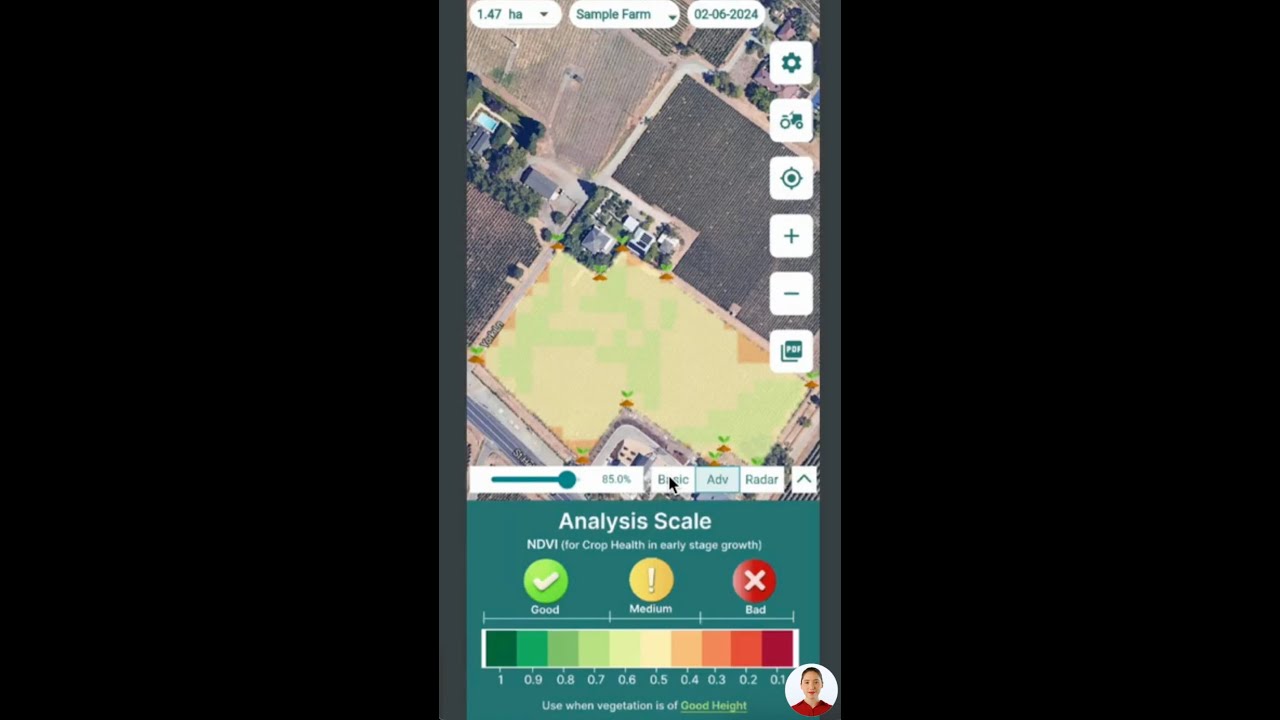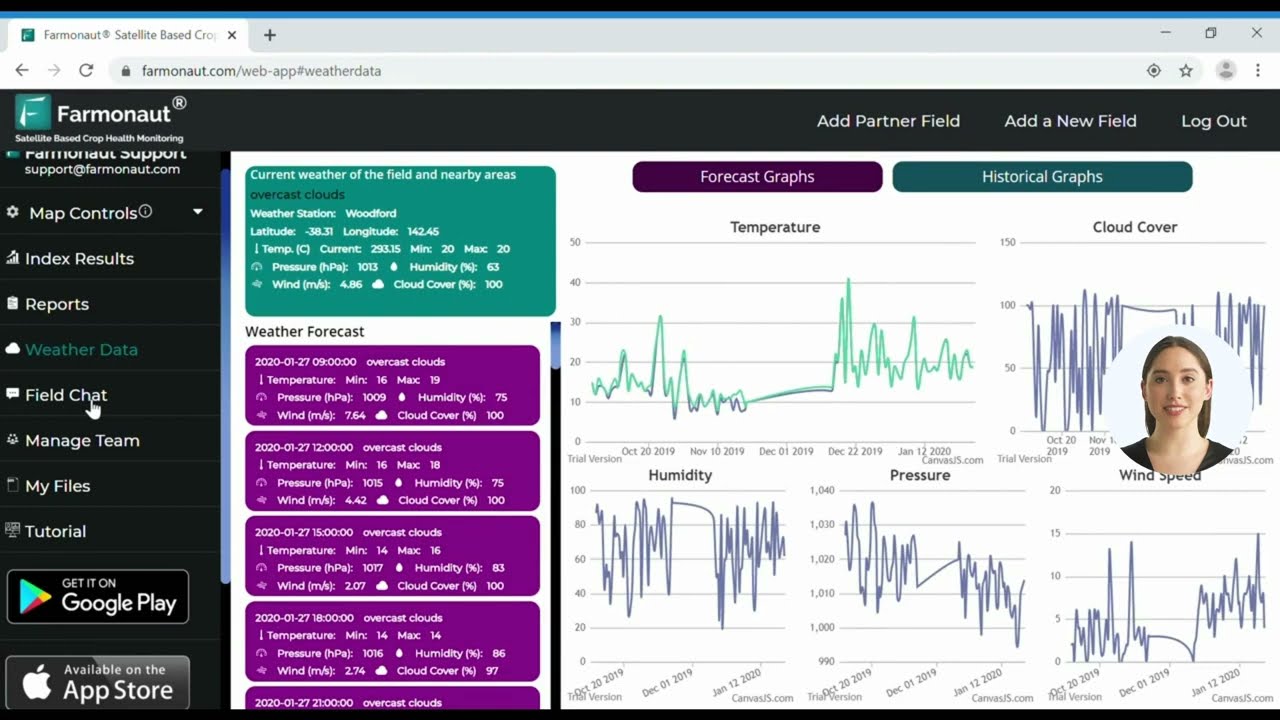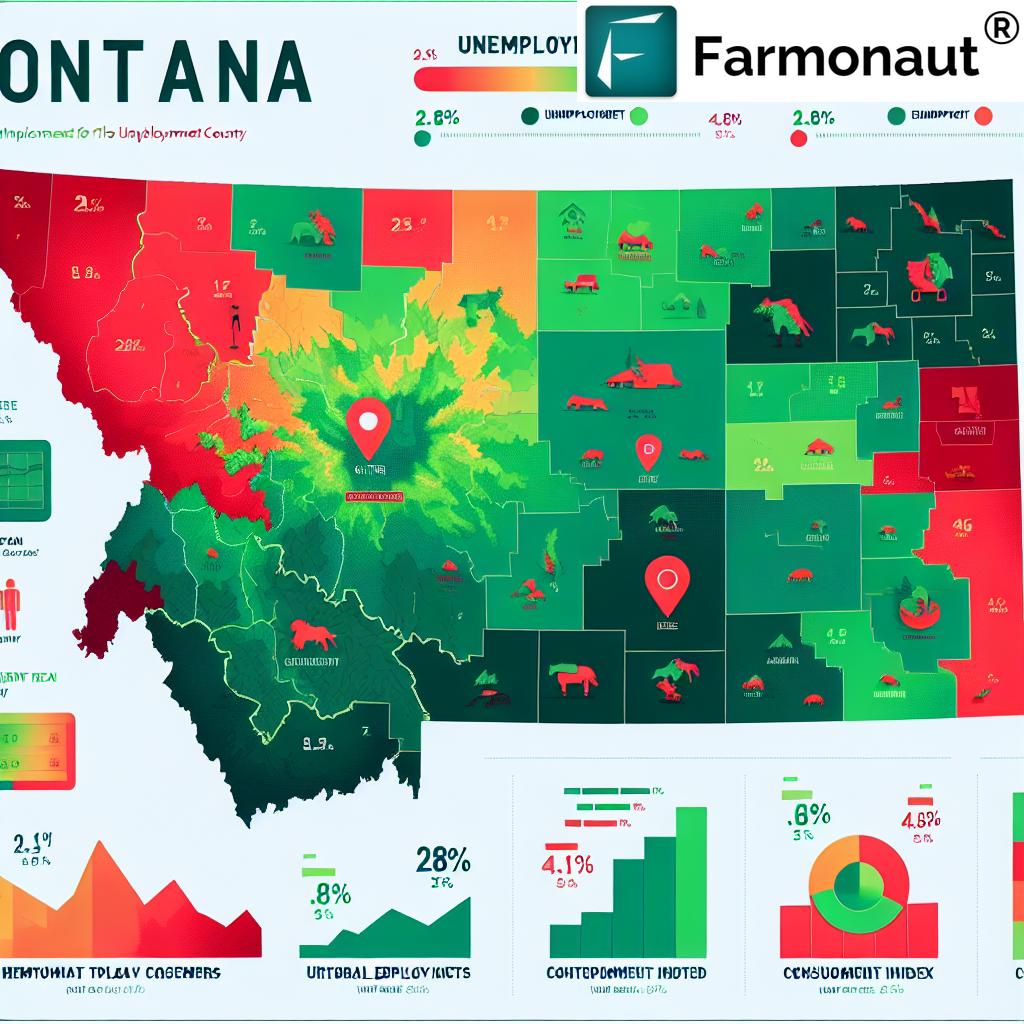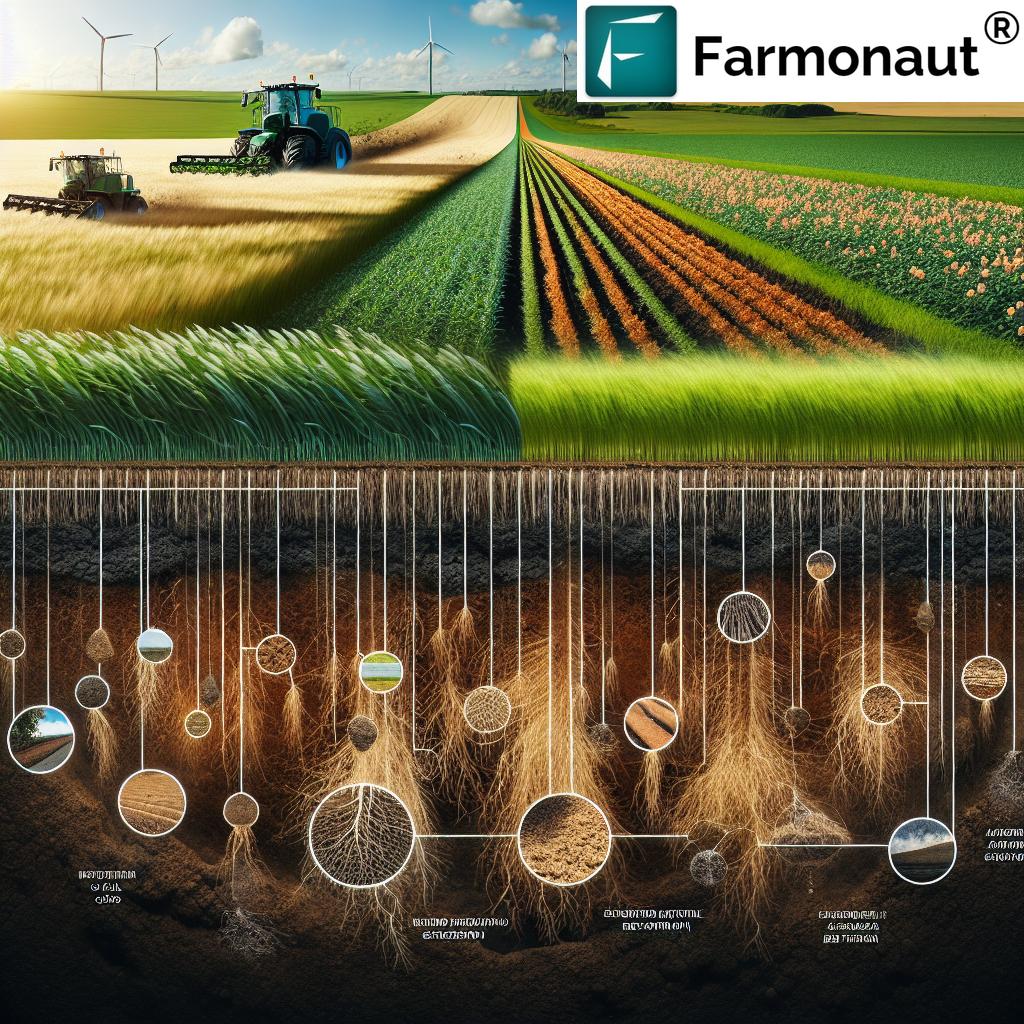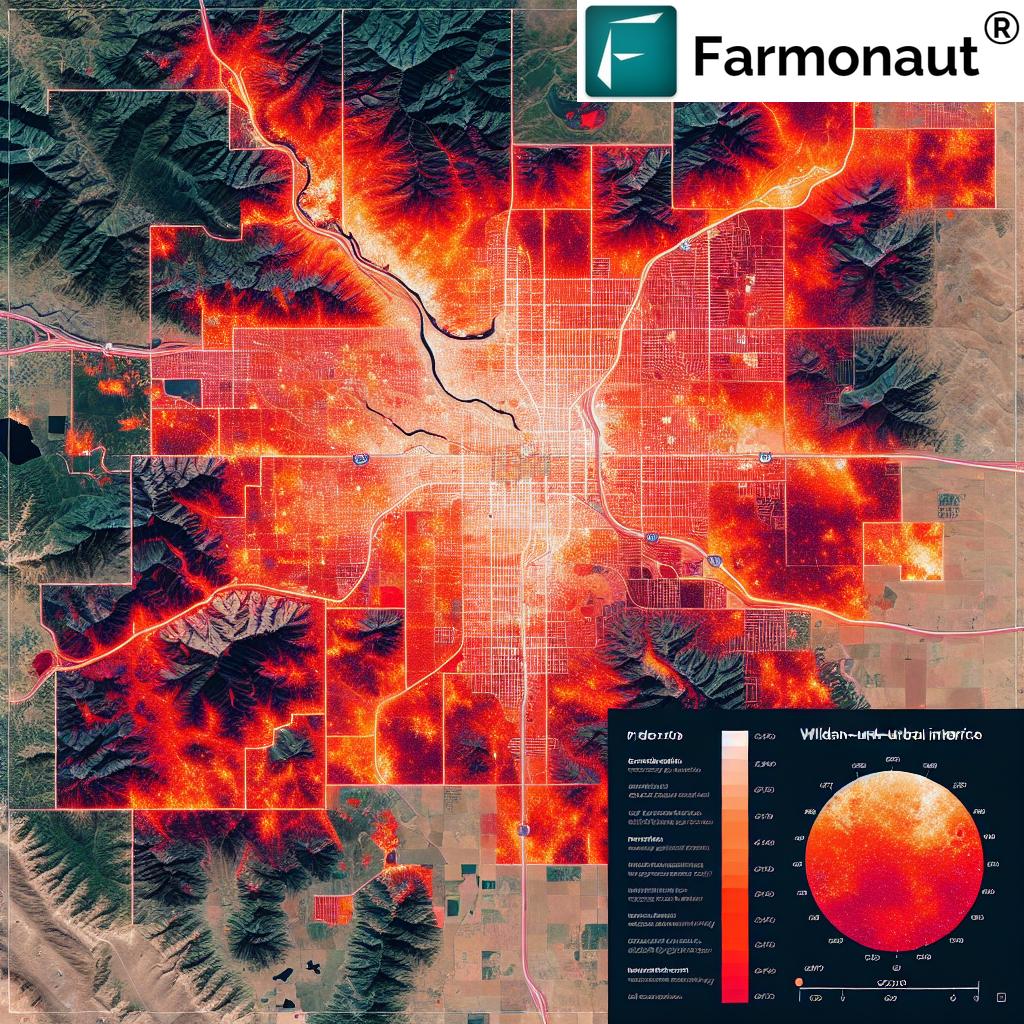Mastering Integrated Weed Management: A Nebraska Farmer’s Guide to Sustainable Crop Production
“Nebraska farmers using integrated weed management can reduce herbicide use by up to 30% while maintaining crop yields.”
Welcome to our comprehensive guide on integrated weed management for Nebraska farmers. In this blog post, we’ll explore effective strategies to tackle weed challenges while promoting sustainable crop production. As we navigate through the complexities of modern agriculture, we’ll delve into innovative techniques, cutting-edge technologies, and time-tested practices that can help you optimize your farming operations.

Understanding Integrated Weed Management in Nebraska
Integrated weed management (IWM) is a holistic approach that combines various methods to control weeds effectively while minimizing environmental impact. For Nebraska farmers, this approach is crucial due to the state’s diverse agricultural landscape and unique climate challenges. Let’s break down the key components of IWM and how they apply to Nebraska’s agricultural context.
- Herbicide-tolerant crops: Utilizing genetically modified crops resistant to specific herbicides
- Precision agriculture techniques: Employing technology for targeted weed control
- Crop rotation strategies: Alternating crops to disrupt weed life cycles
- Soil herbicide carryover management: Understanding and mitigating the effects of residual herbicides
- Climate-adaptive farming: Adjusting practices to changing weather patterns
By integrating these strategies, we can create a robust weed management system that’s both effective and sustainable. Let’s explore each of these components in detail.
Leveraging Herbicide-Tolerant Crops
Herbicide-tolerant crops have revolutionized weed management in Nebraska. These crops allow for the use of broad-spectrum herbicides without damaging the crop itself. However, it’s crucial to use this technology responsibly to prevent the development of herbicide-resistant weeds.

Key benefits of herbicide-tolerant crops include:
- Improved weed control efficiency
- Reduced tillage, leading to better soil health
- Increased crop yields
However, we must be cautious about overreliance on a single weed management strategy. Integrating herbicide-tolerant crops with other methods is essential for long-term sustainability.
Precision Agriculture Techniques for Weed Control
Precision agriculture has transformed how we approach weed management in Nebraska. By utilizing advanced technologies, we can target weeds more effectively while minimizing herbicide use.
Some key precision agriculture techniques include:
- GPS-guided sprayers: For precise herbicide application
- Drone technology: For weed mapping and targeted spraying
- Variable rate application: Adjusting herbicide rates based on weed density
Farmonaut’s satellite-based crop health monitoring system can be a valuable tool in this context. By providing real-time data on vegetation health, it helps farmers identify problem areas quickly and take targeted action.
Implementing Effective Crop Rotation Strategies
Crop rotation is a time-tested method for weed management that’s particularly effective in Nebraska’s diverse agricultural landscape. By alternating crops, we disrupt weed life cycles and reduce the chances of herbicide resistance development.
Effective crop rotation strategies for Nebraska might include:
- Corn-soybean-wheat rotation
- Including cover crops in the rotation
- Alternating between warm-season and cool-season crops
These rotations not only help with weed control but also improve soil health, reduce pest pressure, and optimize nutrient use.
Managing Soil Herbicide Carryover
Soil herbicide carryover can be a significant challenge in Nebraska’s agriculture. It occurs when herbicides persist in the soil longer than expected, potentially affecting the next crop in rotation.
To manage herbicide carryover effectively:
- Keep detailed records of herbicide applications
- Consider soil type and pH when selecting herbicides
- Use bioassays to test for herbicide residues before planting sensitive crops
- Adjust crop rotations based on herbicide persistence
By carefully managing herbicide carryover, we can prevent crop damage and maintain the effectiveness of our weed control strategies.
“Precision agriculture techniques in Nebraska have increased weed control efficiency by 25% in the last decade.”
Adapting to Climate Change: Climate-Adaptive Farming
Climate change presents new challenges for weed management in Nebraska. Changing precipitation patterns and temperature trends can affect weed growth and distribution. As responsible farmers, we need to adapt our practices to these changing conditions.

Climate-adaptive farming strategies for weed management include:
- Adjusting planting dates to outcompete weeds
- Selecting drought-resistant crop varieties
- Implementing water conservation techniques
- Monitoring for new weed species moving into the region
Farmonaut’s weather forecasting and soil moisture monitoring tools can be invaluable in implementing these climate-adaptive strategies.
Farmonaut’s API Developer Docs
Site-Specific Weed Control: Precision in Action
Site-specific weed control takes precision agriculture to the next level. By targeting weeds at a micro-scale, we can significantly reduce herbicide use while maintaining effective control.
Key components of site-specific weed control include:
- High-resolution weed mapping
- Robotic weed removal
- Precision spraying technologies
These techniques not only reduce herbicide use but also minimize crop damage and environmental impact.
Innovative Agricultural Technologies for Weed Management
The agricultural technology landscape is constantly evolving, offering new tools for weed management. Some exciting innovations include:
- AI-powered weed identification: Using machine learning to identify and target specific weed species
- Blockchain for herbicide traceability: Ensuring responsible herbicide use and supply chain transparency
- IoT sensors for real-time field monitoring: Providing up-to-date information on field conditions and weed pressure
Farmonaut’s platform integrates many of these technologies, offering farmers a comprehensive tool for modern weed management.

Sustainable Farming Practices for Long-Term Weed Control
Sustainable farming practices are essential for long-term weed control and overall farm health. These practices not only manage weeds but also improve soil quality, increase biodiversity, and enhance crop resilience.
Key sustainable practices include:
- Cover cropping: Suppressing weeds and improving soil health
- Intercropping: Maximizing land use and reducing weed pressure
- Conservation tillage: Minimizing soil disturbance while managing weeds
- Biological weed control: Using natural predators or pathogens to manage weed populations
By integrating these practices into our weed management strategy, we can create a more resilient and productive farming system.
Tackling Herbicide-Resistant Weeds in Nebraska
Herbicide-resistant weeds pose a significant challenge to Nebraska farmers. Common resistant species include Palmer amaranth and waterhemp. To combat these tough weeds, we need a multi-faceted approach:
- Implementing diverse herbicide modes of action
- Combining chemical and mechanical control methods
- Practicing good farm hygiene to prevent weed spread
- Monitoring fields regularly for resistant populations
Farmonaut’s crop health monitoring can help identify potential resistant populations early, allowing for timely intervention.

Water Management and Weed Control
Effective water management is crucial for both crop production and weed control in Nebraska. Proper irrigation practices can give crops a competitive advantage over weeds while conserving water resources.
Key strategies include:
- Drip irrigation for targeted water application
- Deficit irrigation to stress weeds while maintaining crop health
- Timing irrigation to favor crop growth over weed development
Farmonaut’s soil moisture monitoring tools can help optimize irrigation scheduling for both crop health and weed management.
Crop-Specific Weed Management Strategies
Different crops require tailored weed management approaches. Let’s look at strategies for some of Nebraska’s key crops:
Corn
- Early-season weed control to prevent yield loss
- Post-emergence herbicide applications
- Inter-row cultivation in organic systems
Soybeans
- Using pre-emergence herbicides
- Narrow row spacing for faster canopy closure
- Rotating herbicide-tolerant traits
Wheat
- Fall weed control for winter wheat
- Using competitive wheat varieties
- Timely post-harvest weed management
The Role of Soil Fertility in Weed Management
Maintaining optimal soil fertility is crucial for effective weed management. Well-nourished crops are better able to compete with weeds for resources. Consider these points:
- Conduct regular soil tests to ensure proper nutrient levels
- Use precision fertilizer application to target crop needs
- Incorporate organic matter to improve soil health and suppress weeds
- Balance nutrient levels to avoid favoring certain weed species
Farmonaut’s satellite-based vegetation health monitoring can help identify areas of nutrient deficiency, allowing for targeted fertilizer applications.
Integrated Weed Management Comparison Matrix
| Weed Management Strategy | Effectiveness (1-5) | Cost | Environmental Impact | Suitable Crops | Challenges | Benefits |
|---|---|---|---|---|---|---|
| Herbicide-tolerant crops | 4 | Medium | Medium | Corn, Soybeans | Potential for resistance development | Simplified weed control, reduced tillage |
| Precision agriculture techniques | 5 | High | Low | All major crops | Initial investment, technical knowledge required | Reduced herbicide use, targeted application |
| Crop rotation | 4 | Low | Low | All crops | Requires long-term planning | Improved soil health, disrupts weed cycles |
| Site-specific weed control | 5 | High | Low | All crops | Requires advanced technology | Highly efficient, minimizes herbicide use |
| Climate-adaptive farming | 3 | Medium | Low | All crops | Unpredictable climate variations | Increased resilience to changing conditions |
| Tillage systems | 3 | Medium | Medium | All crops | Potential for soil erosion | Effective for certain weed species |
| Water management | 4 | Medium | Low | Irrigated crops | Requires careful monitoring | Improves crop competitiveness, conserves water |
Future Trends in Weed Management
As we look to the future of weed management in Nebraska, several exciting trends are emerging:
- Genetic editing for weed resistance: Developing crops with enhanced natural weed suppression abilities
- Advanced bioherbicides: Creating more effective and environmentally friendly biological weed control agents
- Predictive weed modeling: Using big data and AI to forecast weed pressure and optimize management strategies
- Integrated sensor networks: Deploying field-wide sensor systems for real-time weed monitoring and automated control
These innovations promise to make weed management more efficient, sustainable, and effective in the coming years.
Leveraging Farmonaut for Advanced Weed Management
Farmonaut’s suite of tools can significantly enhance your integrated weed management strategy. Here’s how:
- Satellite-based crop health monitoring: Identify areas of weed pressure early
- AI-powered advisory system: Receive personalized recommendations for weed management
- Weather forecasting: Plan herbicide applications for optimal effectiveness
- Field mapping: Create precise application maps for site-specific weed control
By integrating Farmonaut’s technology into your weed management plan, you can make more informed decisions and optimize your resources.
Conclusion: A Holistic Approach to Weed Management
Mastering integrated weed management in Nebraska requires a comprehensive, adaptive approach. By combining traditional methods with cutting-edge technologies and sustainable practices, we can effectively control weeds while promoting long-term farm health and productivity.
Remember, there’s no one-size-fits-all solution. The key is to continually assess, adapt, and implement a diverse range of strategies tailored to your specific farm conditions. With tools like Farmonaut at our disposal and a commitment to sustainable practices, we can overcome weed challenges and build a more resilient agricultural future for Nebraska.
FAQ Section
Q: What is integrated weed management?
A: Integrated weed management is a holistic approach that combines various methods, including cultural, mechanical, biological, and chemical controls, to manage weeds effectively while minimizing environmental impact.
Q: How can precision agriculture help with weed control?
A: Precision agriculture uses technologies like GPS-guided sprayers and drone mapping to target weeds more accurately, reducing herbicide use and improving overall efficiency.
Q: What are some effective crop rotation strategies for weed management in Nebraska?
A: Effective rotations might include corn-soybean-wheat cycles or incorporating cover crops. These rotations disrupt weed life cycles and improve soil health.
Q: How does climate change affect weed management in Nebraska?
A: Climate change can alter weed distribution and growth patterns. Farmers need to adapt by adjusting planting dates, selecting appropriate crop varieties, and monitoring for new weed species.
Q: What role does soil fertility play in weed management?
A: Maintaining optimal soil fertility helps crops compete better with weeds. Well-nourished crops can outgrow and shade out many weed species.
Q: How can Farmonaut’s technology assist in weed management?
A: Farmonaut offers satellite-based crop health monitoring, AI-powered advisories, and weather forecasting tools that can help farmers identify weed pressure early and make informed management decisions.


